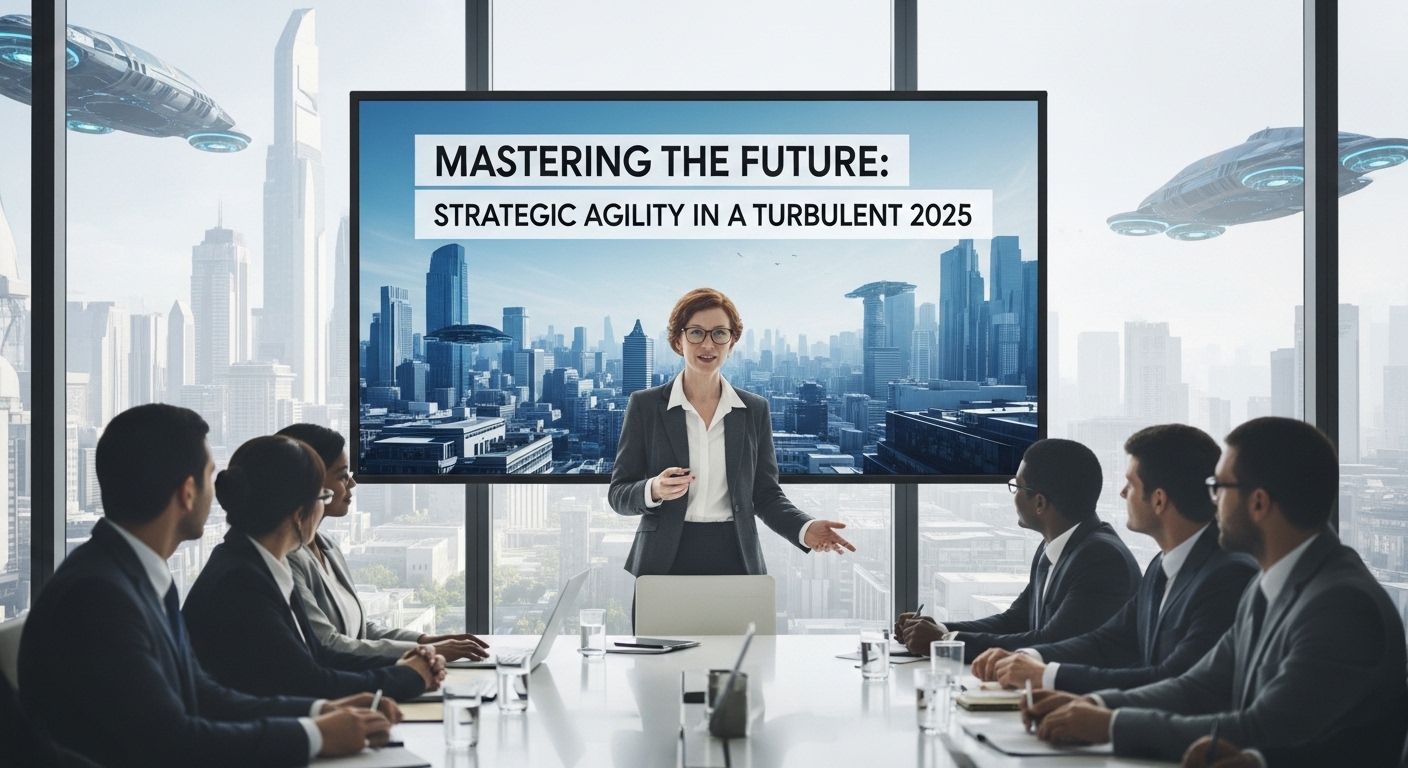In a world defined by relentless change, intense competition, and profound uncertainty, the concept of “strategy” is more vital than ever. It’s the deliberate planning and execution of actions to achieve a long-term, overarching goal. Strategy is about making smart choices, anticipating challenges, and orchestrating resources to transform vision into reality. As of mid-2025, strategic thinking is not merely an option but a critical imperative for survival and success across virtually every domain, from global corporations to national policy and even individual career paths.
The New Imperative: Strategic Agility and Data-Driven Foresight
At its core, strategy is a general plan designed to achieve one or more long-term or overall goals under conditions of uncertainty. The hallmark of effective strategy in 2025 is strategic agility – an organization’s ability to quickly adapt to changes in the business environment, whether internal or external, to mitigate issues and remain competitive. This means being prepared, flexible, and responsive when change is the only constant.
Key elements driving effective strategy in this era include:
- Deep Analysis and Predictive Insights: Strategy begins with a thorough understanding of the current situation – internal strengths and weaknesses, external opportunities and threats (SWOT analysis) – and a clear grasp of the competitive landscape. In 2025, this analysis is increasingly enhanced by Artificial Intelligence (AI) and predictive analytics. AI can uncover hidden patterns, forecast market shifts with greater accuracy, and estimate the value of different strategic initiatives across multiple scenarios. This AI-powered foresight helps organizations anticipate challenges or opportunities and address them preemptively, offering unmatched agility and resilience. AI can also help mitigate human biases in strategic decision-making.
- Clear Choice and Unique Positioning: Effective strategy involves deciding what to do and, crucially, what not to do. It’s about defining a unique position in the market or a distinct approach to a problem. As management guru Michael Porter famously stated, “The essence of strategy is choosing what not to do.” It’s about being differentiated, not just trying to be the best at everything.
- Resource Orchestration and Measurement: Devising specific courses of action, allocating resources (financial, human, technological) effectively, and designing organizational structures to bridge the gap between the current state and the desired future. Smart leaders are using AI to measure performance and allocate resources more efficiently, ensuring alignment with long-term strategic goals.
- Compelling Communication and Commitment: A strategy must be communicated effectively and compellingly to secure the engagement and commitment of all stakeholders. A clear, data-driven narrative makes the future tangible and inspires dedicated action. Without consistent action, even the most brilliant strategy remains merely an idea.
A Legacy of Strategic Thought: From Ancient Generals to Modern Executives
The concept of strategy has deep historical roots, initially emerging in military contexts. From Sun Tzu’s Art of War (5th century BCE), which emphasizes deception, understanding oneself and the enemy, and achieving victory without direct confrontation, to Carl von Clausewitz’s theories (19th century) on the complex, unpredictable nature of war and the link between military means and political ends, ancient and classical military thinkers laid the groundwork. In the 20th century, rigorous strategic thinking was applied to business, with influential figures like Alfred Chandler, Igor Ansoff, and Michael Porter developing frameworks for competitive advantage and corporate positioning. Today, strategy is a multidisciplinary field, drawing from economics, psychology, sociology, and data science.
Strategic Imperatives in 2025: Navigating a Complex World
The need for robust strategic thinking is amplified in mid-2025 by several interconnected global factors:
- AI as a Strategic Pillar: Artificial intelligence is no longer just an emerging technology but a fundamental pillar driving corporate success. Businesses are building strategies around AI for enhanced decision-making (using predictive analytics), operational efficiency (automating tasks like data processing and customer queries), and hyper-personalization of customer experiences. AI assists strategists as a researcher, an interpreter of data into insights, and even a thought partner to brainstorm ideas and mitigate human biases. The ethical implications and evolving regulatory frameworks for AI are also becoming essential components of forward-thinking strategy.
- Economic Volatility and Geopolitical Uncertainty: The global economy in 2025 is expected to maintain modest momentum, but faces significant risks. The World Bank projects global growth to slow to 2.3% in 2025, with growth forecasts cut for nearly 70% of economies due to heightened trade tensions and policy uncertainty. Geopolitical tensions, such as changes in tariff policies and ongoing conflicts, can disrupt global supply chains and increase price volatility. Strategies must focus on building resilience, diversifying revenue streams and supply chains (“friendshoring”), and anticipating impacts from shifts in trade policies. Renewed global dialogue and cooperation are crucial for a more stable path.
- Sustainability at the Core: Sustainability criteria are no longer optional components but drivers of business success. Regulatory pressure (like the Corporate Sustainability Reporting Directive – CSRD in Europe), consumer demand, and investor expectations (with sustainable assets projected to hit $50 trillion by 2025) have positioned Environmental, Social, and Governance (ESG) practices as a vital framework for growth. Companies are embedding sustainability into governance, leveraging technology for real-time impact tracking, and setting science-based targets for climate action. Failure to prioritize sustainability can negatively impact brand reputation and access to capital, as consumers increasingly shift away from firms neglecting these areas.
- Evolving Workforce and Talent Scarcity: Labor shortages persist globally, and employee expectations for flexibility, work-life balance, and personalized development are changing. Strategic HR planning must focus on talent optimization, upskilling and reskilling initiatives (especially for AI literacy), and fostering a human-centric culture to attract and retain talent. Companies that invest in AI literacy and ethical AI use for their teams, offer personalized employee experiences (from onboarding to development paths), and prioritize mental well-being are more likely to retain top talent. Over 65% of companies are leveraging AI in their hiring processes to identify and engage with the right talent.
- Regulatory Compliance and Ethical Leadership: The regulatory environment is growing increasingly complex across various sectors, from environmental to data privacy (e.g., GDPR, DORA) and AI governance. Leaders must develop strategies for proactive compliance management, leveraging AI in compliance monitoring to identify suspicious activity patterns and streamline reporting. This ensures their organizations stay updated on evolving legal requirements and ethical considerations, particularly as AI amplifies concerns around bias and accountability. Ethical leadership is critical to fostering a strong compliance culture, making it an embedded part of the organizational DNA, not just a checkbox exercise.
Strategy is the compass that guides us through complexity, the blueprint for our aspirations, and the discipline that turns intention into impact. In an increasingly uncertain future, the ability to formulate, adapt, and execute effective strategies will be the defining characteristic of successful individuals, thriving organizations, and prosperous nations.

